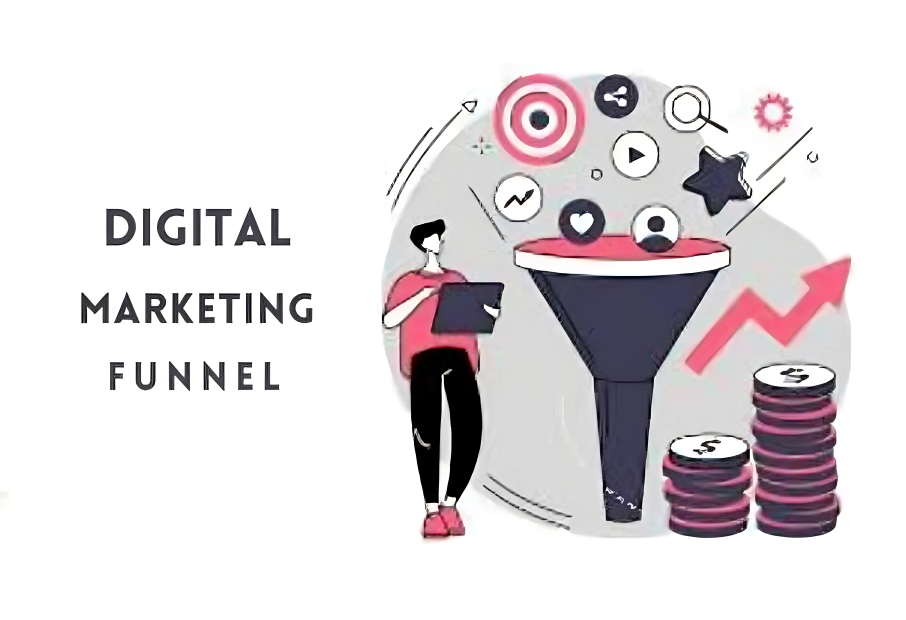In the dynamic landscape of digital marketing, demand generation serves as the catalyst, driving potential customers to your digital doorstep. Once they arrive, the pages they explore, be it in a single visit or across multiple sessions, hold sway over the likelihood of transforming these visitors into actual customers. This entire intricate process is encapsulated by the digital marketing funnel.
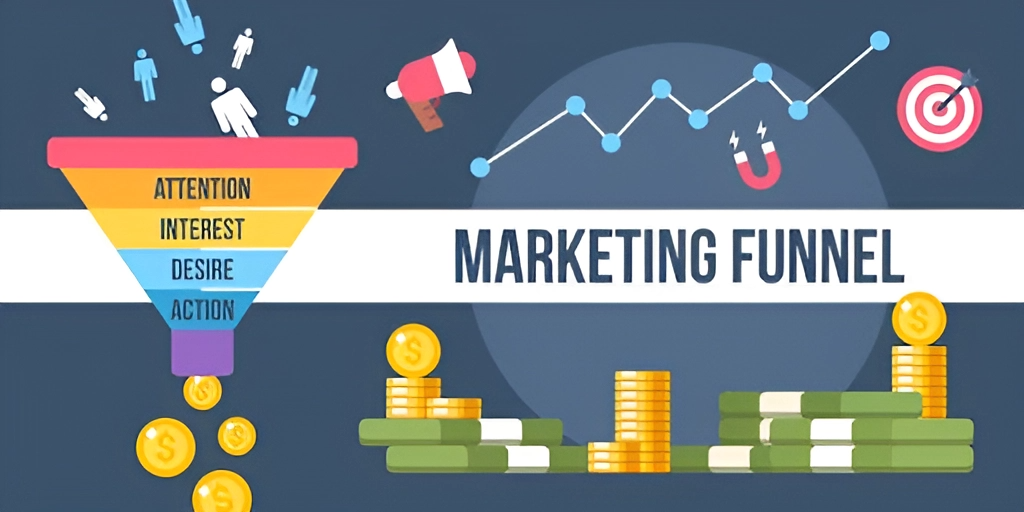
When precisely designed, a digital marketing funnel becomes a window into the minds of your potential customers as they navigate your online domain. It unfolds in discernible stages, providing a lucid perspective on the ever-shifting landscape of their experiences and perceptions regarding your brand.
The digital marketing funnel is not just a cog in the marketing machinery; it stands as a pivotal guidepost in the customer’s journey. It charts the most effective and streamlined route customers may traverse in their purchasing expedition. Ultimately, the digital marketing funnel emerges as a thoughtful and strategic framework, fostering connections and meaningful customer engagements throughout their unique journey.
What is a Marketing Funnel?
A marketing funnel is a representation of the customer journey, outlining the stages individuals traverse once they become aware of a product, business, or service.
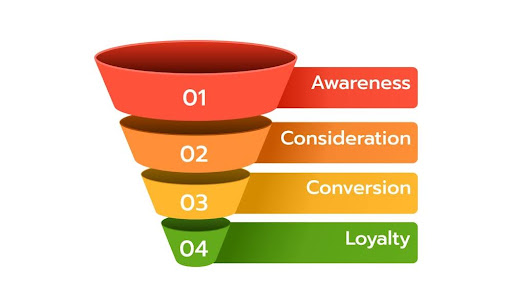
The funnel takes on a tapered shape, symbolizing the gradual narrowing of the audience as they progress toward making a purchase. Although minimizing dropouts is a goal, it’s expected that some individuals will exit at each stage, with the most dedicated reaching the completion stage.
Customer journeys are diverse and intricate, yet the marketing funnel offers marketers a clear and simple framework to navigate this complexity. You can utilize customer journeys to:
- Understand your target audience and tailor your approach accordingly.
- Identify and address weaknesses in the customer journey.
- Interpret your marketing results.
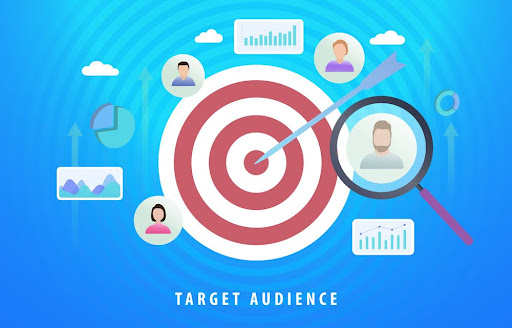
All of these aspects contribute to constructing a more effective marketing strategy and, ultimately, attracting sales.
The Evolution of the Marketing Funnel
Towards the end of the 20th century, Elias St. Elmo Lewis developed a model outlining the stages of a customer’s relationship with a business. The “AIDA” model suggests that every purchase involves:
- Awareness: Potential customers become aware of their problems and potential solutions.
- Interest: Potential customers express interest in a range of services or products.
- Desire: Potential customers start evaluating a specific brand.
- Action: Potential customers decide whether to make a purchase.
What is a Digital Marketing Funnel?

A digital marketing funnel describes the steps that users take to move from being a prospect to a customer. While there are multiple marketing funnels, most include stages focused on awareness, consideration, purchase, and retention. Each business adopts distinct funnels and pursues unique goals. However, if the businesses belong to the same industry or market, they may share similar funnels, aligning with their specific objectives.
Types of digital marketing funnels and how they work
In today’s world, the digital marketing funnel captures the random journey of shoppers, from businesses to consumers. As every user takes a different approach, there are several versions of the latest online marketing funnel. There are three most common forms of digital marketing funnels:
1. Hourglass Digital Marketing Funnel:
This online marketing funnel takes a thorough approach to the stages of the customer journey. In comparison to the other funnels, the hourglass digital marketing funnel emphasizes the importance of building and preserving customer relationships. This approach is behind the funnel’s hourglass structure.

The pre-purchase stages of this digital marketing funnel include the following:
- Engagement: Building brand awareness
- Education: Identifying a problem
- Research: Finding a solution
- Evaluation: Determining how a product or service resolves a problem
- Justification: Validating the purchase of a product or service
- Purchase: Buying the product or service
Following a purchase, the subsequent stages in the customer journey include:
- Adoption: Commence utilization of the acquired product or service.
- Retention: Ensure the ongoing satisfaction and contentment of the user.
- Expansion: Explore opportunities for upselling or introducing complementary offerings to the user.
- Advocacy: Foster the transition of the user into a brand advocate, encouraging positive word-of-mouth and promotion of the product or service.
While the steps after making a purchase typically follow a clear path, the stages leading up to a purchase are more flexible. Users can jump in at any point. For instance, someone might realize they have a problem before even knowing about a specific brand. Alternatively, they could come across a brand while comparing it to a competitor’s product.
2. Looping Digital Marketing Funnel:
Unlike the hourglass-shaped online marketing funnel, the looping digital marketing funnel takes on a more flexible structure. With only six stages, it accommodates the individual and varied paths users take on their journey to making a purchase.
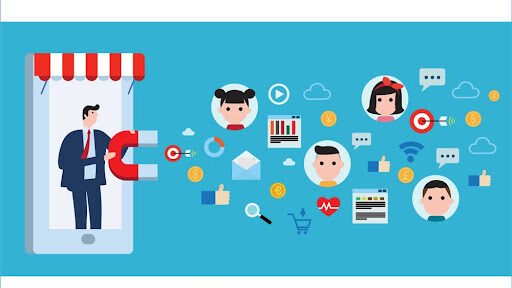
In this digital marketing funnel, there are several key stages:
- Awareness: recognizing a problem or need.
- Consideration: searching for a solution.
- Research and Discovery Loop: Exploring potential solutions and brands.
- Purchase: deciding to buy a product or service.
- Post-Purchase Experience: Enhancing the overall buying experience.
- Loyalty Loop: Establishing and nurturing customer loyalty.
Regardless of your industry, the versatile looping digital marketing funnel is suitable for your business. You can customize it to meet your specific requirements, whether that involves emphasizing the loyalty loop or adding an extra step before the purchase.
3. Micro-moments Digital Marketing Funnel:
The micro-moments digital marketing funnel draws inspiration from Google’s concept of micro-moments. In this digital marketing approach, your business directs attention to the motivations that prompt a user to enter the funnel.
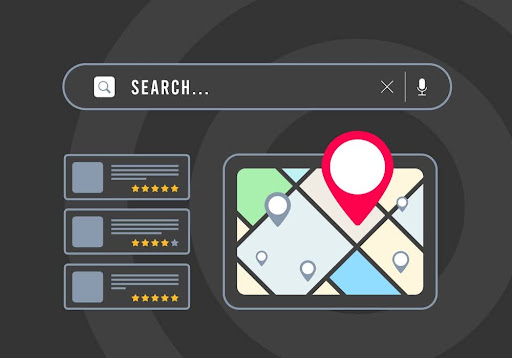
The components of this digital marketing funnel include the following:
- Want-to-Know Moment: Addressing a question.
- Want-to-Do Moment: Acting.
- Want-to-Go Moment: Heading somewhere.
- Want-to-Buy Moment: Making a purchase.
Unlike the hourglass or looping digital marketing funnels, the micro-moments digital marketing funnel doesn’t delve into users’ actions after experiencing a micro-moment. Instead, your business needs to brainstorm the potential actions your target shopper might take during these moments.
Conclusion
In wrapping up our exploration of the digital marketing funnel, we’ve journeyed through its various forms, each offering a unique perspective on guiding potential customers to conversion. Whether you’re intrigued by the structured hourglass, the adaptable looping, or the insightful micro-moments, the key takeaway is that understanding your audience’s journey is crucial.
Infiniqe Marketing helps you by aligning your strategies with your needs, from awareness to loyalty. We positioned your brand to navigate the digital landscape effectively. So, as you embark on your digital marketing endeavors, remember the significance of these funnels in crafting meaningful and successful customer journeys.
